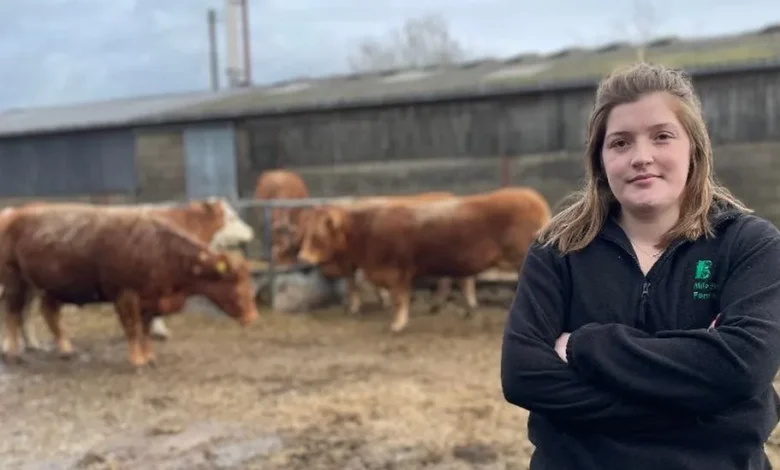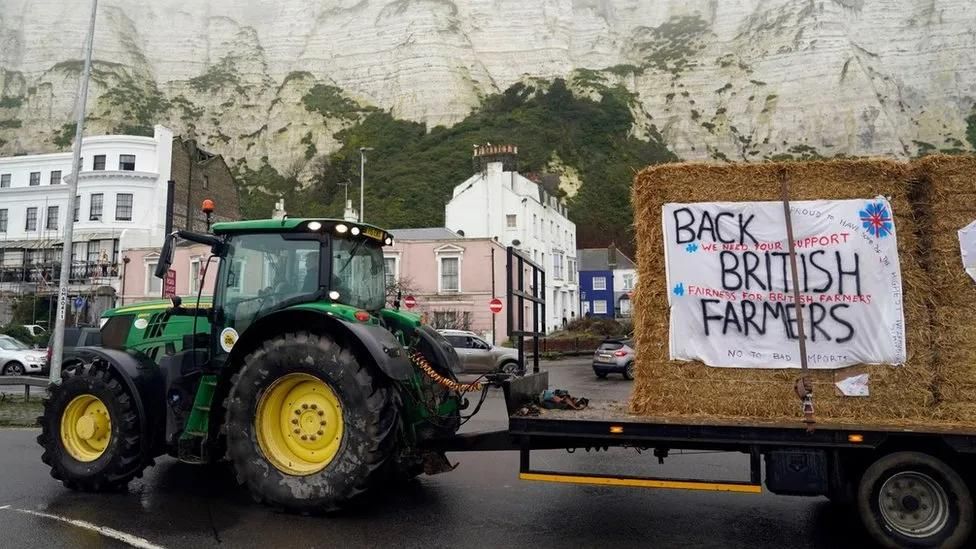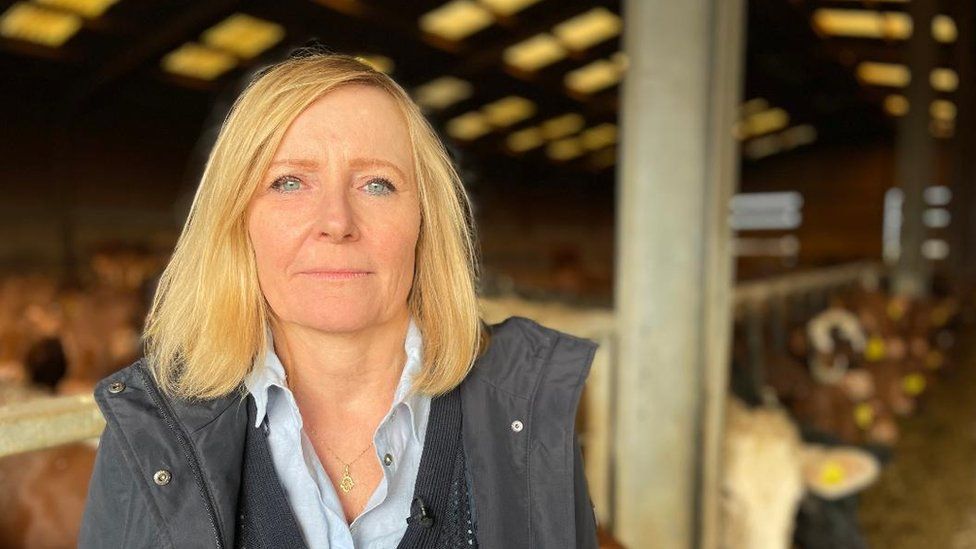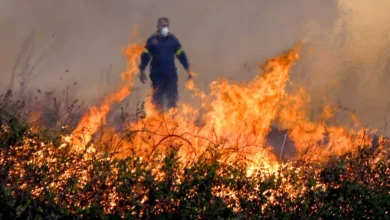PM announces support for farming amid industry ‘crisis’

The prime minister will announce a package of measures on Tuesday to help farmers – but many say more is needed to support an industry “in crisis”.
Rishi Sunak will use a speech at Tuesday’s National Farmers Union annual conference to outline government plans to boost the UK’s food security.
The NFU broadly welcomed the plans but said they included no actual new money.
Farming protest groups say more needs to be done to protect UK farmers from competition posed by cheaper imports.

The conference, in Birmingham, comes as farmers are struggling with rising costs, low supermarket prices and a new post-Brexit farm payments scheme that many say has focused on environmental policy over food productivity.
Josie Lewis, 25, has taken on the family dairy farm of about 200 cows in Calne, Wilts.
“I have never done anything other than farming,” she told BBC News.
“I love my job. It’s hard but so rewarding.”
But “having enough money to pay the bills at the end of the month is a problem,” Mrs Lewis said.
She added that she believed farmers had to go through too much bureaucracy to access government grants, while being undercut by cheaper food imports from countries with lower welfare standards than the UK.

“British farming is in a crisis,” Mrs Lewis said.
“At the end of the day, who is going to be feeding great Britain as a country? We can’t keep relying on imported goods.
“We need the government to listen to us and give us a bit more backing with funding and schemes so we can move forward and continue making a good product for members of the public.”
Food security
Mr Sunak is expected to say £220m will be put into new food-productivity schemes, farm technology and automation to “reduce reliance on overseas workers” during the next financial year.
He will also announce plans to cut bureaucracy around permitted development rights, so farmers can more easily diversify and develop new businesses, such as farm shops, commercial space and sporting venues.
And, while regulations are due to be laid in Parliament to ensure reasonable contracts for the dairy sector, similar rules for the pig and egg sector will follow.
Mr Sunak is also expected to announce the Farm to Fork food-security summit held last year will become an annual event.
He will tell delegates: ‘We’ll never take our food security for granted. We’ve got a plan to support British farming.”
‘Price war’
But ahead of the conference, many farming campaign groups said the government needed to do more and protests, like those in Dover over the weekend, may follow.
Martin Fox, one of the founders of Proud to Farm, said the government had already “lost the trust of the farming sector” and farmers felt “the NFU isn’t listening to their concerns”.
Save British Farming co-founder Liz Webster, a mixed arable and beef farmer, said: “Successive governments have given too much control to the supermarkets, who’ve been in a price war with each other, and it’s just been a drive to make everything cheap – as cheap as possible.
“But we are tied to high standards as well, so it means that we are farming as a charity in many ways.”
Get Fair about Farming founder Guy Singh-Watson said a long-term plan was needed to develop more routes to market for farmers, which “would not only allow British family farmers to make a fair return on their produce but also allow them to invest in decent jobs for rural communities, protecting our climate and nature and strengthening our supply of high-quality, homegrown food for generations to come”.
‘Crippling producers’
Meanwhile, Labour’s shadow environment, food and rural affairs secretary, Steve Reed, said the government had “undermined” British farming.
“They put up trade barriers that blocked food exports and let energy bills soar out of control, crippling producers and putting thousands out of business,” he said.
In her opening address at the conference, NFU president Minette Batters is expected to say all political parties need to give food security the same strategic priority as energy security.
Of the prime minister’s announcement, she said: “It’s not new money. It’s the existing budget that they committed to at the last election – but there is substantial investment there, in capital grants, technology and in innovation so, yes, it will help.
“And setting a target for food production and annual reporting at least… means we are starting to take food security seriously.”










